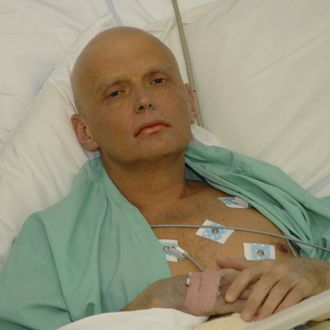
Vladimir Putin “probably approved” the poisoning of a Russian spy turned Kremlim critic in 2006, a British inquiry has found.
The 328-page report prepared by retired High Court judge Robert Owen offers an elaborate and damning account of the murder of Alexander V. Litvinenko. Litvinenko was a KGB officer who fled to the U.K. in 2000, after exposing corruption in Moscow’s security services. He died from polonium-210 poisoning shortly after having a drink with KGB officers Andrei Lugovoi and Dmitry Kovtun in a London hotel in November 2006. The judge found that Lugovoi and Kovtun had left a trail of radioactive polonium particles as they traveled across London, with the strongest readings coming from a washbasin in Kovtun’s bedroom.
The evidence of Putin’s involvement is purely circumstantial: It’s hard to get your hands on polonium if you don’t have access to a Russian reactor, Litvinenko had been planning to meet with Spanish investigators about links between Putin and organized crime, and poisoning ex-KGB agents just seems like a very Putin thing to do. The New York Times reports that British diplomats don’t want a little extrajudicial killing to prevent continued cooperation between Russia and the West over resolving the war in Syria.
Speaking before Parliament, U.K. Home secretary Theresa May called the poisoning “a blatant and unacceptable breach of the most fundamental tenets of international law and civilized behavior,” but conceded that Putin’s apparent role “does not come as a surprise.”






























